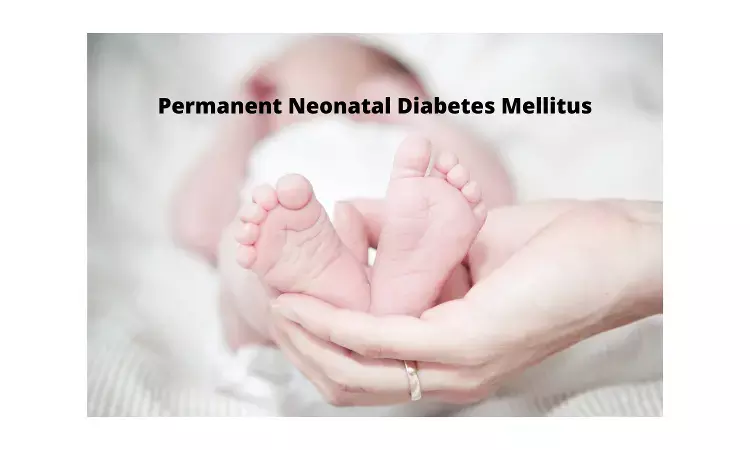- Home
- Medical news & Guidelines
- Anesthesiology
- Cardiology and CTVS
- Critical Care
- Dentistry
- Dermatology
- Diabetes and Endocrinology
- ENT
- Gastroenterology
- Medicine
- Nephrology
- Neurology
- Obstretics-Gynaecology
- Oncology
- Ophthalmology
- Orthopaedics
- Pediatrics-Neonatology
- Psychiatry
- Pulmonology
- Radiology
- Surgery
- Urology
- Laboratory Medicine
- Diet
- Nursing
- Paramedical
- Physiotherapy
- Health news
- Fact Check
- Bone Health Fact Check
- Brain Health Fact Check
- Cancer Related Fact Check
- Child Care Fact Check
- Dental and oral health fact check
- Diabetes and metabolic health fact check
- Diet and Nutrition Fact Check
- Eye and ENT Care Fact Check
- Fitness fact check
- Gut health fact check
- Heart health fact check
- Kidney health fact check
- Medical education fact check
- Men's health fact check
- Respiratory fact check
- Skin and hair care fact check
- Vaccine and Immunization fact check
- Women's health fact check
- AYUSH
- State News
- Andaman and Nicobar Islands
- Andhra Pradesh
- Arunachal Pradesh
- Assam
- Bihar
- Chandigarh
- Chattisgarh
- Dadra and Nagar Haveli
- Daman and Diu
- Delhi
- Goa
- Gujarat
- Haryana
- Himachal Pradesh
- Jammu & Kashmir
- Jharkhand
- Karnataka
- Kerala
- Ladakh
- Lakshadweep
- Madhya Pradesh
- Maharashtra
- Manipur
- Meghalaya
- Mizoram
- Nagaland
- Odisha
- Puducherry
- Punjab
- Rajasthan
- Sikkim
- Tamil Nadu
- Telangana
- Tripura
- Uttar Pradesh
- Uttrakhand
- West Bengal
- Medical Education
- Industry
Oral repaglinide, a better way to treat permanent neonatal diabetes mellitus: Study

Iran: A rare case of permanent neonatal diabetes mellitus (PNDM) in two Iranian infants was reported by Dr Maryam Razzaghy-Azar and team, is usually presented with dehydration and hyperglycemia, during the first 12 months of life. Some patients with PNDM respond to sulfonylurea derivative, during hypoglycemia and has an apoptotic effect on beta cells. However, there have been no reports regarding treatment with meglitinide (repaglinide).
Azar and team revealed that PNDM in every neonate or infant less than 6 months of age with diabetes mellitus, should be considered. A trial of oral repaglinide can be performed and substituted for glibenclamide for prevention of hypoglycemia, neurological damage, and apoptosis of beta cells during long-term administration. This case study is published in the Journal of Medical Case Reports.
The doctors made an effort to evaluate the efficacy of the effects of repaglinide administration in the management and clinical outcome of two patients with PNDM during 9 and 10 years of follow-up.
Two Iranian infants with poor general condition, dehydration, lethargy, and poor feeding was brought to hospital. They were diagnosed with diabetic ketoacidosis at 52 days and 3.5 months of age, respectively. Their genetic analysis revealed mutations in the KCNJ11 gene encoding KIR6.2, so they both had PNDM. After treatment of diabetic ketoacidosis with insulin, they responded to sulfonylurea (glibenclamide) treatment, but were switched to repaglinide because of blood sugar fluctuations in terms of hyper- and hypoglycemia. Repaglinide was administered with the dosage of 0.04 mg/kg/day divided before every meal.
The patients were last evaluated at 10 and 9 years old, they found to have normal growth parameters. The values of self-monitored blood glucose were well-controlled, and the hemoglobin A1C (HbA1C) levels ranged from 3.6 to 6.4% during the follow-up period. There was no complication of diabetes, neurological disorder, or adverse effects related to repaglinide.
Azar and team, concluded that "In every neonate or infant < 6 months of age with diabetes mellitus, PNDM should be considered. A trial of oral repaglinide can be performed and substituted for glibenclamide for prevention of hypoglycemia, neurological damage, and apoptosis of beta cells during long-term administration."
Reference:
Razzaghy-Azar, M., Nourbakhsh, M., Talea, A. et al. Meglitinide (repaglinide) therapy in permanent neonatal diabetes mellitus: two case reports. J Med Case Reports 15, 535 (2021). https://doi.org/10.1186/s13256-021-03052-5.
Medical Dialogues consists of a team of passionate medical/scientific writers, led by doctors and healthcare researchers. Our team efforts to bring you updated and timely news about the important happenings of the medical and healthcare sector. Our editorial team can be reached at editorial@medicaldialogues.in.
Dr Kamal Kant Kohli-MBBS, DTCD- a chest specialist with more than 30 years of practice and a flair for writing clinical articles, Dr Kamal Kant Kohli joined Medical Dialogues as a Chief Editor of Medical News. Besides writing articles, as an editor, he proofreads and verifies all the medical content published on Medical Dialogues including those coming from journals, studies,medical conferences,guidelines etc. Email: drkohli@medicaldialogues.in. Contact no. 011-43720751


